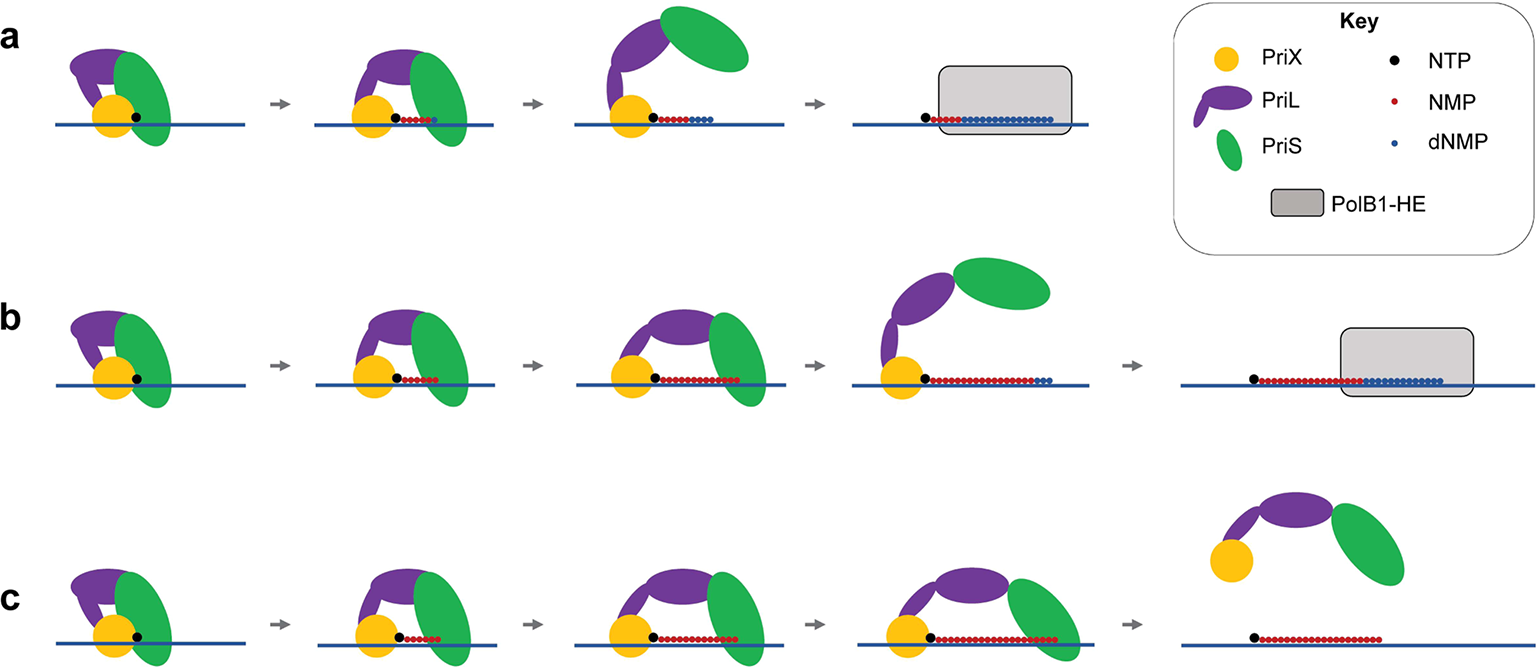A new publication in Nature Communications from graduate student Mark Greci gives insight into how DNA replication initiates.
Our textbooks tell us that DNA polymerases, the enzymes that copy DNA, cannot start the process without a priming molecule. In cellular DNA replication this primer is generated by another enzyme, called primase. Intriguingly, this priming molecule is made of RNA not DNA.
The publication reveals that the primase found in archaeal microorganisms generates a novel hybrid primer that is mostly RNA but which terminates with a DNA moiety. Thus, the archaeal primase has the very unusual property of being a dual specificity RNA and DNA polymerase. Importantly, the incorporation of DNA by the primase has two interwoven functional consequences. It causes primase to lose its grip on the priming molecule and, in doing so, allows transfer of the primer to the DNA polymerase for extension as DNA.


 The College of Arts
The College of Arts